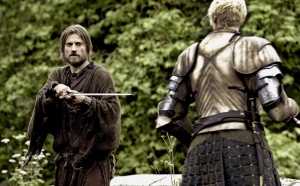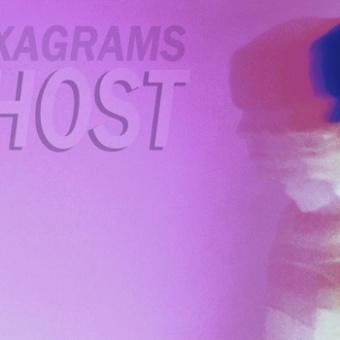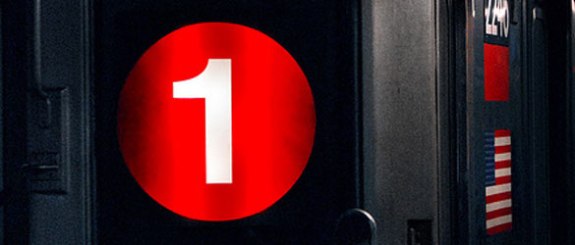Note: I know it has been forever, so for Easter I am giving all of you a special present, a full-length story in one post. This one is a mystery. Feel free to comment or write me a mail with your theories! Often readers’ responses are far more clever than anything I could imagine myself!
-A

Do You Want To Know?
Danny’s first time with a girl was a disaster – but that was not a truth to share with friends. Whenever he talked about it – even with his best friend, Jonah – he never mentioned her name. The lover’s identity remained secret even as the retellings changed from memory to story, and from story to myth. With each new recounting, the intimacy, the pleasure – grew just a little bit better, a little more intense, more golden, special, sanctified, glorious. Danny started to convince even himself that the one night was something special, unique, worthy of celebration, of retelling. The dreamed thing, invented by unconscious embellishment, was something very hard to put into words that were not lies even more bald-faced than the phantasy they rested on. Maybe, he began to think to himself, he would like to do it again, or do something again – and retake a moment imagined but never captured in real life.
The warped glass of the mind changes all reflections with time.
In any case, Danny was ready for the unnamed adventure resting silently before him, covered in darkness. It is just that he did not know it. When Buck Ruskin told him there was going to be a party soon, and not just any party but the “biggest, baddest and best” of all the senior year bashes – he was ready to listen. Buck promised girls, drunk girls, easy girls, virgin girls, in sum: girls. Danny could imagine himself at the party, late in the night in a white bedroom with the sounds of music far down below somewhere, him on top of some figure, fucking the thing in the bed, its legs stretched out, white, open, high, welcoming – and he too would be high, high out of his mind – and he would be powerful in that moment, wanted at last – all the way inside. It didn’t matter, it could not matter, that his first time was so awkward, so uncomfortable – and finished with a silence. Thinking about it that way was a mistake. It was better to think about sex the way all the others thought about it: her mouth was made to service him, draw himself out of him, make him a man that does those kinds of things to women – a real man, and nothing less. Given the alternatives to this narrative, the story of his own power was ultimately the one Danny chose to believe.
Around two weeks ago, the encounter in question started with a few text messages arriving practically out of the blue. The girl, Linda was her actual name, had never been anything much to him before – and the feeling was theoretically mutual. Suddenly she was interested in him though, interested in seeing him on a particular night – and she did. They planned it. They met at 4:30 PM, after school had already been out a while. After a quick meal of hamburgers and fries, she told him there’d be more than just a movie. Just like that. Factual. He was shy at first, but then relented shyness; it was time to be scared and excited all at once. After the agreement was made, both took out cell phones and sent out the right lies to the right people. No one was going to suspect. Danny drove his best friend Jonah’s car carefree and quick. They made jokes, glanced out the windows of the car, glanced at each other with bodies light as air – and discussed the ridiculous movie they peeked at between kisses and touching. Finally they arrived at the destination: a dark place, away from all the lights at the big medical centre parking lot by the Taconic. The angle of a hill shielded them in the dark place, and though they could easily see the road, no one from the road below could see them.
Traffic passing in the night made a sound like a swiftly running river.
“What time is it?” Linda asked, with a strange look on her face, as they parked. It was 12:30. Her expression was suddenly, oddly strained; she looked out the window nervously searching the road stretching east and west beneath their hidden vantage. It was very dark. She seemed to take something out of her pocket, and put it back. A white object. A piece of paper? If so, why?
“I don’t think your dad knows you’re here.” Danny guessed at her thoughts.
She let out a nervous laugh, and turned to him, smiling. “Don’t worry about it. Just keep a look out if you see any cars.”
It was Danny’s turn to be nervous. He’d be looking for cars in the dark just as much as she was; no one wanted troopers to arrive and spoil everything. Danny half expected a police car to arrive at any time when the deed was being done – with bright lights, a siren, and a hastily zipped up zipper.
Oh, that would suck some serious ass.
There would be embarrassed confessions and the use of mouthwash. Boy and girl would beg for mercy, secrecy, forgiveness.
But no retribution came.
Heaven did not bestir itself on their behalf.
It actually took a few minutes for both of them to fully realize that no great eye was watching them, so they both got on with it, manfully. Danny was the only one to come in the end. It took a long time for it to occur, more than seemed normal for good sex. He had to help himself. Afterwards, Linda didn’t say anything on the drive to her house, and once they arrived she took a good look around, opened the door silently, and glided away into the night without a goodbye. Danny didn’t take her actions as a positive sign. Alone in his best friend Jonah’s borrowed car, asked himself silently what changed between the ride to the encounter and the ride back.
Linda never spoke to Danny in front of witnesses ever again. During seventh period, their only shared class, there were glances – jaundiced, awkward, between pauses of chatting or teacher-talk. When bell rang, they did their best to look in every opposite direction possible. Their eyes wandered into strange angles of the science classroom where dusty things gather and age: yellowed posters about mosquitoes and spiders the far wall, an archaic and childish model of the solar system above a high cabinet, and a globe on the windowsill so old that the words FRENCH EQUATORIAL AFRICA marched across the Sahara. All these things Danny and Linda noticed in their quest to avoid noticing each other. Hard work won a flimflam silence: miserly, thin, and fake. He would come to regret those silences, and questions unasked, in the many years to come.
Danny would think about Linda on the daily drive to school with his best friend Jonah, dreading the game of avoidances. He thought about her face as they bought breakfast at the gas station before school. There was a quiet sadness in her face, and something was making it sadder, thinner – stretched.
Unconsciously, Danny was convinced of something movies and TV shows had taught him his entire life: sex and love are the same thing. He was surprised to find that he expected Linda to be his girlfriend, or to be his friend, or at least to answer him, to be there; but instead he found only incompleteness, a void.
The boy did not drift into the void unnoticed. Jonah and others observed his listless acts, blank stares, and empty silences. Nor was he the only lost one; these were the last days of high school for everyone – tedious, gratuitous, untoward high school days no one wanted any more, but still there for nauseous consumption. The students had become men and women in tiny desks, getting too big for those desks, suffocating in those desks. It was time for all of them to move on, transition, grow, fly – or sink, flunk, burn out, go mad – life had many possibilities. But something had to happen -everyone knew it – and the answer to the mystery was not contained in Social Studies class. That was why Buck Ruskin came over to invite him personally, and to invite practically everyone he could personally think of, to the big party. The last big party. The waiting had to end.
“Dan man,” he whispered in his ear one day in gym class “Get drunk. Get Happy. Celebrate. That’s an order.”
Danny questioned him with an unsure glance.
I’m so tired. He thought.
“Come on. We’re almost out of this place. We’ve earned it.”
Why not try to be happy?
Danny nodded his head.
The party would be held at Buck’s home – his “palace,” as it was called – a famously fancy 20-room mansion-with-guesthouse built near an artificial lake on a high wooded hill.
The family was in construction.
Buck’s father was an interesting and wealthy man, to say the least. He suffered a terrible construction accident 15 years ago, and received a settlement so large that he became practically a local celebrity. Harland Ruskin joked for years afterward that people would be throwing themselves off of heavy equipment “until the cows come home” in attempts to replicate his settlement. In his cups, he’d always end the story by imitating the cows as they ‘came home’ to ruddy town patrons at the local Hobnobbin’ Pub: “Mooooooo! Mooooooo! Moooooooo!” Last time he told the story, he laughed so hard that beer came out of his nose. This of course made him laugh all the harder.
Harland used the settlement money he received to go into construction – and within three years he bankrupted the former boss whose unsafe machines had all but taken away Harlan’s ability to walk. One of the things that Harlan spent a great deal of his profits on was his only son – especially after the decease of his wife Ella from throat cancer. Harlan told anyone that would listen that he was going to build a palace “for his own,” and worked hard so that his son would want for nothing.
The old man was really something to be around, a good-times guy who, it just so happens, was a shark at business and not someone that anybody would want for an enemy.
*****
Time melted and the day of the big party snuck up like a man in the night, creeping towards an open window. Danny was seated outside the main high school building, waiting for Jonah to get out of his seemingly endless and definitely pointless extra-help math class and drive to the party. It was not as if Jonah was ever going to get any better at math – everyone knew he was hopeless.
Yet he keeps going to those sessions . . .
Jonah honked the car horn for Danny, who had somehow missed him. Exciting as it was, there was also something surprising about being invited to such a big social event. Danny was nothing special to Buck – who was equally jolly with everyone, though few enough of ‘everyone’ counted as his true friends. When really thinking about Buck, he was almost mysterious. Not just anyone was allowed into his private world. On the outside it was all smiles, handshakes, pats on the back, and bottles of beer, but maybe there was something else. Or not. It might be just as it seemed to everyone: Buck was just a rich jock who liked to throw parties, and was planning to go out with a bang no one would soon forget.
On the drive, as Jonah broke speed limits, occasionally swerving, the two got to talking about what was going to happen at the party. There would be girls. That was clear. Buck had just broken up with the popular, athletic, and beautiful Kara several months ago, and there was no shortage of eager alternates wanting to get their hands on Buck. Buck’s closest friends, his partners in crime, would definitely be there as well: gigantic, solemn Issac Sloat and laughing, blonde Chris Mason – all three players on the football team. Big men of high school, they had spent the last two weeks acting like prophets of beer and sex, foretelling how “this party will be remembered.”
Who else would be there?
The class was a big one, over 700 people. If you had any friends at all, chances are Buck or one of his deputies had directly or indirectly invited you. The football team in its entirety would be attending, for sure.
Boyfriends would be taking their girlfriends, and Chris’ ex, Kara, who was officially amicable with him, would be going too. All of her many friends, which included Linda, would be at the party. While Jonah gunned the engine between hairpin turns, going up the tiny hills toward the house – the two friends concluded most everyone would be coming. Each and every one of them linked to the other by destroyed relationships, new relationships, silent attractions, plans for the future, and the ticking clock of the end of High School hanging over it all – a catalyst.
It was then that Danny broke they question that had been in his mind since the beginning of the drive, but it came out as a simple statement: “You haven’t asked for gas money.”
“Yeah, not today. Maybe tomorrow.”
“You always ask.” Danny paused “What happened?”
The reason Jonah didn’t ask for gas money was the 50$ bill he found on the kitchen table in the trailer. The note under it was simple: “for you.” So Jonah took. It was his dad for sure, he said, and his dad was nowhere to be found.
“Who knows where he is now,” sighed Jonah.
Danny had a good guess: another night drinking – or maybe just maybe – a new job. Jonah’s dad sometimes worked engineering on out-of-state on oil pumps. It was good work that could pay a lot, if you got it. When it wasn’t available though, well – then the trouble came. It had been a while since the last job. Maybe it was the right time for a new one. That would explain the $50 and the sudden disappearance. Danny said as much.
“I hope he can hold it, if he’s got it.” Jonah replied.
Jonah’s father did not expose his son to binges. He kept his shame away in long nights and days of hiding. Where he went and who he stayed with were not topics for discussion. A lot of things, come to think of it, were not topics of discussion in this town.
“I wish I knew where he goes.” Jonah confided.
“Do you want to know? Maybe it’s better you don’t.” Danny took a stab at wisdom.
Jonah smiled, “That’s very stupid. I wish I knew. Not knowing is the worst.”
Before there was time for another attempt at being wise, they pulled up to Buck’s monstrous house. Set far back from the road, on a long private driveway, it was a shining vision in white pillars on top of a wooded hill illumined by the slanting rays of the setting Upstate Sun. It looked almost heavenly. As they opened the car doors, a chill wind sprang up and stole all the warmth away in the blink of an eye.
The front door of Buck’s palace was wide open, spilling music everywhere. The night was falling, but the party was already here in wait, dressed up, wearing a mask, pregnant with secrets. Danny and Jonah were welcomed in with big red plastic cups filled with beer, which were then drained, filled, drained, and filled again – and everyone was laughing – and the rooms spun. Danny easily drank too much, finding alcohol more accessible than women. Everyone was laughing because everyone was there, all in their best clothes, and wasted, angelic, young, maybe high – happy, and possibly as beautiful and happy as they would ever be.
Issac Sloat stood up. They were all in the middle of the huge living room, and they were telling stories to each other, while others danced in the cleared-off giant dining room, or made out upstairs in the innumerable bedrooms and verandas or were making drinks in the second (and actually larger than the first) kitchen. All of this was going on, without even mention of the totally independent party going on at the pool, which was still too cold for swimming, but had attracted the less eminent B-level crowd of non-seniors and friends from other schools.
Issac took a plastic fork that had wandered over to his table and drunkenly tapped it on the side of the big red drinking cup to get people to pay attention. He was young, but the muscles in his forearm flex as he did this. Impressive for his age, to have that level of development.
Tap tap tap!
He told a story about the Football Coach watching porn. The punchline: he was wearing diapers as he was doing it.
“That’s what gets him off!” Sloat hooted.
There were guffaws, and Danny’s awareness spiralled away. He was looking up at the ceiling fan. Foom Foom Foom Foom. Other people were telling small stories of variable taste and hilarity. Some stories were cruel. The group broke up.
Next he knew, he was at a table with Jonah in another room, a booth, and his head was feeling a little clearer. No one else seemed to be around. His hands were on the table, and there was plain water in his cup.
“Take it easy.” Jonah cautioned, who was slurring badly himself, and still drinking. “I handle my alcohol better than you.” From his seat at the other side of the small table, Danny saw the beer gleaming in his red cup.
“You too.” He said. Then repeated it for no reason. “You too.” Then he said something he came to regret. “Lets play a game.”
“What kind of game?”
“A truth telling game.”
“Okay.”
Danny realized Jonah was more intoxicated than he; normal people do not agree to such things so quickly.
The started out with small truths. Small revelations, then bigger ones. In Junior year it was apparently Jonah who played with then spilled a dangerous corrosive acid snatched from the science lab chemical locker. It burnt a hole in the floor of the classroom and caused a school evacuation, with everyone waiting outside. The fumes activated a fire alarm off which in turn engaged the sprinklers, raining torrents of water and summoning the local fire department. The next morning, an unhinged principle made a psychotic, rambling address to the entire school.
“The culprit will be found out! Unmasked!”
Except Jonah was never unmasked. He kept his mask on tight, well until now at least.
A big secret demands a big secret, and Danny thought for a while. He needed something good, and soon found it. Jonah saw the look of hesitation on his face.
“Ohh…” Jonah wondered. “That good, eh?”
“Yep.” Danny agreed. “But there’s a price.” They were both very intoxicated by this point; the water had been swapped out for more beer and the swilling was prodigious. “The next one you tell me, must be something that is very secret, something you’d be afraid to say out loud at all, a supreme secret.”
“OK!” No hesitation from Jonah. “Now tell!”
“You know I got into Columbia.”
“Yes. You had incredible SAT scores.”
“Incredible.” Danny agreed, his tongue thick, words sloppy. “INCREDIBLE is the word. IN CRED IB LE (pronouncing ‘le’ as ‘lay’). Can’t be credded. Can’t be believed.” He let there be a moment of emphasis. “I cheated.”
“HOW?” Jonah was flecking beer from his mouth. “How?” Quieter.
“I’ll tell you that when you tell me your next secret. Make it something good. I’ve already told you enough to risk myself.”
And I would be at risk, if it were true, thought Danny. In truth the only secret he had to hide was Linda’s name, and he was not willing to part with that secret. He didn’t attempt dangerous chemistry like Jonah.
“OK.” Jonah gasped. “OK OK OK.” There was a long silence, nervous, too nervous. Danny felt the urge to call this dangerous game off, but before he opened his mouth, Jonah was already speaking..
“The remedial math I go to, you know the one.”
“You never get any better!” Danny was relieved, this was small stuff.
“Maybe getting better isn’t the point. I’ve been afraid to admit it even to myself, even to think it, but I still go, I go.”
Danny was confused: “Why?”
Jonah continued as if speaking to himself: “A lot of other people go. We always sit in the same seats. English lit is last period, and the math class is across the way. Chris Marone, he’s in my Lit class, he goes to the math extra help . . . I always sit next to him. We have a good time . . . I like going.”
Danny was waiting for the secret, and his eyes grew huge when he found it.
“That’s. . .” his voice became a whisper. “That’s . . . gay.”
Danny didn’t say anything else, his mind was swirling.
Gay? Gay? Could he?
Who is gay in the school? Danny went into an inner world. Who?
The only people he could think of were the freaks in GLAAD. The GLAAD club freaks; less-than-losers. Images came. A fat girl with a boy haircut who wore only black. No name. She had a man’s voice, puffy hands, soft, with black nail polish. Then there was Tall Paul Palumbo, 6 ft 2’ and sideshow thin, womany.
“Chris Cordell.” Danny murmured it, and Jonah went white. That was another one of those. He wore woman’s clothes and walked too fast in the hallways. Maybe he was 5 feet tall. Very thin. Every word he said was painfully effeminate, and strangely infuriating. Once in gym class they were seated, for some reason, to answer questions – the whole class. The idea was to teach rules of soccer and football to those who didn’t know them already. The coach was asking questions. Cordell raised his hand, and way back, four rows away, Danny winced. Even that – he thought at the time – even that tiny gesture – raising his hand, he did it faggoty, fucking faggoty.
He looked over at Jonah: How can he be one of those? He didn’t fit. It didn’t make any sense.
Jonah stirred, reaching over for his beer resting between them on the table. Quick as lighting, Danny drew his hands back from the table top. A terrible unsaid thing lounged around them now, sucking up all the air.
Danny slurred “gotta go,” and left, nearly knocking his leg on one of the legs of the table. Jonah did not stop him.
The truth game was over.
*****
Danny wandered towards the kitchen and away from Jonah, noticing that new people had come to the party while others had seemingly left. They were kids from other High Schools, kids from the college, kids who weren’t kids. In the cavern spaces of the mansion, people had broken off into groups, scattered throughout the halls and rooms of the huge building, like embers of a once-great fire.
He made it to the big kitchen just fast enough to vomit in the sink.
I’ve had too much.
He felt a little better. The water was right there too. He rinsed his sick away and filled and emptied and filled his mouth several times, then took a swig of Coca Cola from the fridge bulging with beer, soda, fruit juice, and vodka. He didn’t taste puke anymore, but was still dizzy and lightheaded, and from the corner of his eye he caught a glimpse of Linda, Linda of the lost night, just as he was turning around. Maybe they could talk now. She was two rooms away, and exiting through a side door. He wandered towards their direction, monitoring the condition of his stomach and not wanting to vomit in the house.
Linda was with Kara. Once he got outside, he caught sight of them far away, walking on the gravel path near the artificial lake. Danny knew that the path led to the “Sexhut” as Buck Ruskin called it – an overly fancy boathouse. They seemed to be moving with urgency, or perhaps it was simply Danny’s intoxication that made it seem that they were travelling so much more quickly. It felt like five minutes underwater simply to get to where he saw them on the path, stomach raw. He vomited again. By the time he finished the gravel path, traveling at a safe slow speed, the girls had long arrived. They were on the second floor, a light was shining out from a sunroom and one of the girls was smoking on a small, attached veranda. The door was unlocked, and the house was nestled in darkness, except for the light from upstairs.
He went up the stairs towards the light, and into a sunroom with a balcony that would have been sunny if it weren’t 2 or 3 AM – or later. At the top, a hallway stretched to the left of the stairs and away from the big open area of the sunroom that was as black as night.
Linda noticed him instantly as he came up the stairs.
Tears were streaming down her face. She made an effort to compose herself. “Hey . . . Danny.”
Danny didn’t know what to say: “Hey.”
Kara turned from her balcony looked at both of them, cigarette in hand. There was firmness in her voice. “I will be downstairs,” and with that she was gone, not into the dark hallway but down the stairs, lightly, quickly.
Danny said what he thought was best. “I’m sorry about that stuff in the car, about the science class. I wanted to talk to you, but if I’m bothering you. I’m sorry. Just tell me.”
Tears were still wet on her cheek. She had stopped crying.
“I never wanted to make you cry, I –“
A sickly laugh came out of Linda, unexpected, terrible, then this: “I have bigger problems, Danny Blaine. Bigger than you.” She opened her bag, and fished out a cigarette and a lighter. He never did see what else might have been inside that bag. Only then did Danny understand. She had already been crying.
Before he had a chance to react, a sound came from the pitch-black hallway, a stirring, a bumping noise, a something. Both of them looked into the dark maw that sprawled to the left, soaking up everything. Maybe it was one of the dogs that were running around half mad, because of all the new people at the house, or maybe it was something else.
Danny peered, squinting for a second.
Was there a shape in the darkness? No. Were there shapes in the darkness?
Danny thought he saw something, but it was hard to know for sure.
Linda’s face was white. “Get out.” Then once again, quickly: “getout.” Danny didn’t argue and exited via the stairway, in haste. Kara was coming up the stair as quickly as he was going down it, and why he could not tell. Very soon he was gone altogether from the place, walking briskly on the gravel road staring at the ominously still artificial lake.
Danny woke up on a couch in the main house in the morning. Jonah was shaking him. Touching his shoulders. Danny opened his eyes, saw, and pulled away instantly. “We’re gonna miss class – and I need gas money.” The ride to school was uncomfortable to say the least. Neither said a word, and Jonah’s habit of driving too fast became driving insanely fast. It felt like they careened into the gas station where Danny paid for gas and got an egg sandwich – with a perfect view of State Trooper Paris, who pulled up right behind Jonah as he was pumping his tank full. A ticket.
In class they didn’t talk to each other either, and Danny moved his seat far away. At one point, as they exited from that first period, their eyes accidently met. “I’m finding a ride home,” Danny said, and that was that.
But that wasn’t that. There was also something else going on, something unsettling. Many people were not in class, and not just that day after the big party, but the next day too, and the day after that.
Two days later, a trooper came for Danny at his home, escorted him to his patrol car, and sat him in the back. He did not answer Danny’s questions until the door was tightly shut and both were in the car.
“Linda and Kara are missing.” The officer announced. “We’d like to ask you a few questions.”
“Missing?”
Danny refused to understand, and asked a million stupid questions – but the trooper did not care to answer. The trooper, and the rest of the policemen, once they arrived at the station – preferred to be the ones asking the questions. There were questions about his last meeting with Linda, their romantic involvement, the figures in the dark – and of course what Danny had been up to the night of the disappearance and the following morning thereafter. They spent hours in the office, Danny repeating his strange story, over and over.
A week later they found Linda and Kara’s vehicle some fifteen miles away. It was crashed into the side of an abandoned building near Lake Champlain, a cabin – but not violently – only as if the car had been backed into the building. The owners of the cabin, an elderly Jewish couple and residents now of Camp Sunshine (a Jewish retirement village), had absolutely no idea what it was doing there. More puzzling yet, a passer-by reported that around 5:20 AM he had seen the car in the same position, but with headlights on. The passer-by said it was too dark to see if anyone was actually in the vehicle, or in the house. No material evidence, or at least no material evidence shared with the public, has ever been revealed in relation to this event.
The police searched Harlan Ruskin’s mansion, and his son Buck Ruskin fell under suspicion. The local newspaper, the White Star, ran an editorial extolling Buck’s innocence and explaining the case to the public. After that was over, the police then named Issac Sloat a person of “intense interest.” After no evidence was revealed connecting Sloat to the disappearance, Chris Mason became the most interesting person, from a police perspective. All of this came to nothing. The police searched and searched and searched. No bodies were discovered, no bloody clothes, no suicide notes, nothing. Harlan Ruskin drained the artificial lake voluntarily and nothing was found afresh. The only thing all the searching revealed – and it was revealed very quickly – was that the two girls’ cell phones were found in the crpytic guesthouse by the now-empty lake, gently smashed, and completely submerged in a filled bathroom sink. Either they destroyed them or someone did it for them. The purses of the girls were, and remain to this day, missing. If they had taken Kara’s car – or if someone else had driven them or gone with them – also remains a matter of heated debate.
Jonah supplied the alibi that saved Danny from criminal suspicion, since the police were at first strongly disinclined to believe his narrative about a strange two or three AM chat in the guest house. But Jonah stated he saw Danny returning from the chat, and also that he had remarked on his coming and going with others he was drinking with – all of whom who corroborated his testimony. Finally, Jonah’s speeding ticket placed both individuals in the gas station where they interacted with Trooper Paris, who remembered them both. Jonah himself was never under any suspicion, since the photos he took with his cell phone clearly placed him in the main house for most of the night.
No matter Jonah’s role with the police, Danny was not prepared to forgive him anything; a wall of silence was raised to make Jonah go away and stay away. Too much happened that night – too much that could never be forgotten, strangers in a dark hallway – listening – secrets everywhere hiding in shadows. The last days of high school ended nervous, and everyone got what they asked for: to be adults.
Three months later Jonah wound up wrapped around a tree, driving too fast again. Blood tests showed he was drunk at the wheel. His father never did come back. The loss made Jonah reckless and wild. At least that is what the townies said. Danny knew better. He noticed the beating someone gave Jonah two weeks before he died. He noticed the black eye and swollen, bruised neck when Jonah showed up one night on Danny’s doorstep, begging for cash. Danny opened his door, saw who it was, and slammed it in his face.
I guess Chris Mason didn’t love him back.
That was the thought that ran through Danny’s head over the midnight grave, long after all who had buried him were gone. The town suffered enough tragedy of late, and The White Sun didn’t headline Jonah’s death – and how could they – with Linda and Kara still missing? The story was on page 6b next to ads for hairdressers and tractor repair.
Danny wanted to believe neither Linda, nor Jonah, nor Kara mattered – no one mattered. Maybe it was better this way, the best narrative to choose, under the circumstances. He imagined Linda was happy with Kara somewhere on a beach in Mexico. Jonah, he simply did not allow his thoughts to wander to, he was just gone. That’s what he told himself that week, next week, and two years later laying in his dorm room bed staring up at the ceiling – but then the dreams came, and they would not be denied under any circumstances.
The same dream came to him each night, always the same.
He is walking up the stairs in the guesthouse, shadows looming at his side – silence all around. He enters the open sunroom at the top, and sits down on one of three chairs around a table he remembers from a restaurant as a kid, closed long years ago. Kara is leaning over the balcony, smoking. Linda is seated at the second chair of the table, with Jonah at the third. Light in the room comes from a candle as bright as a light bulb. Kara leaves without saying a word. Both Jonah and Linda try to tell him things, whispers, speaking over each other, a radio full of static. Somehow the candle seems loud. Jonah gestures at him, still seated, a crisp 50-dollar bill in his hand, begging him to take it. Finally he makes out the whispers of his disappeared friends: “get out… get out… get out.” Before he can argue, sounds arrive from the hallway to the left – and all three look, as the darkness seems to swallow all the room. Danny is frozen, his eyes like polished stones, full of tears, heart pounding, desperate. He cannot see – but knows there are figures in the dark, figures without eyes, without faces – and they are watching him, submerged in a nameless sea thick as evil.
Danny rises from the chair to run in slow motion, looking towards the hall, always looking towards the hall. But before he can run away from – or run towards – whatever is at the end of the hallway, a voice always comes. Emanating, the disembodied voice has the strength of ages, and is not afraid of him. It always asks:
“Do you want to know?”
Danny runs, but can’t run. He can only inch away, walk, crawl, be swallowed – die.







